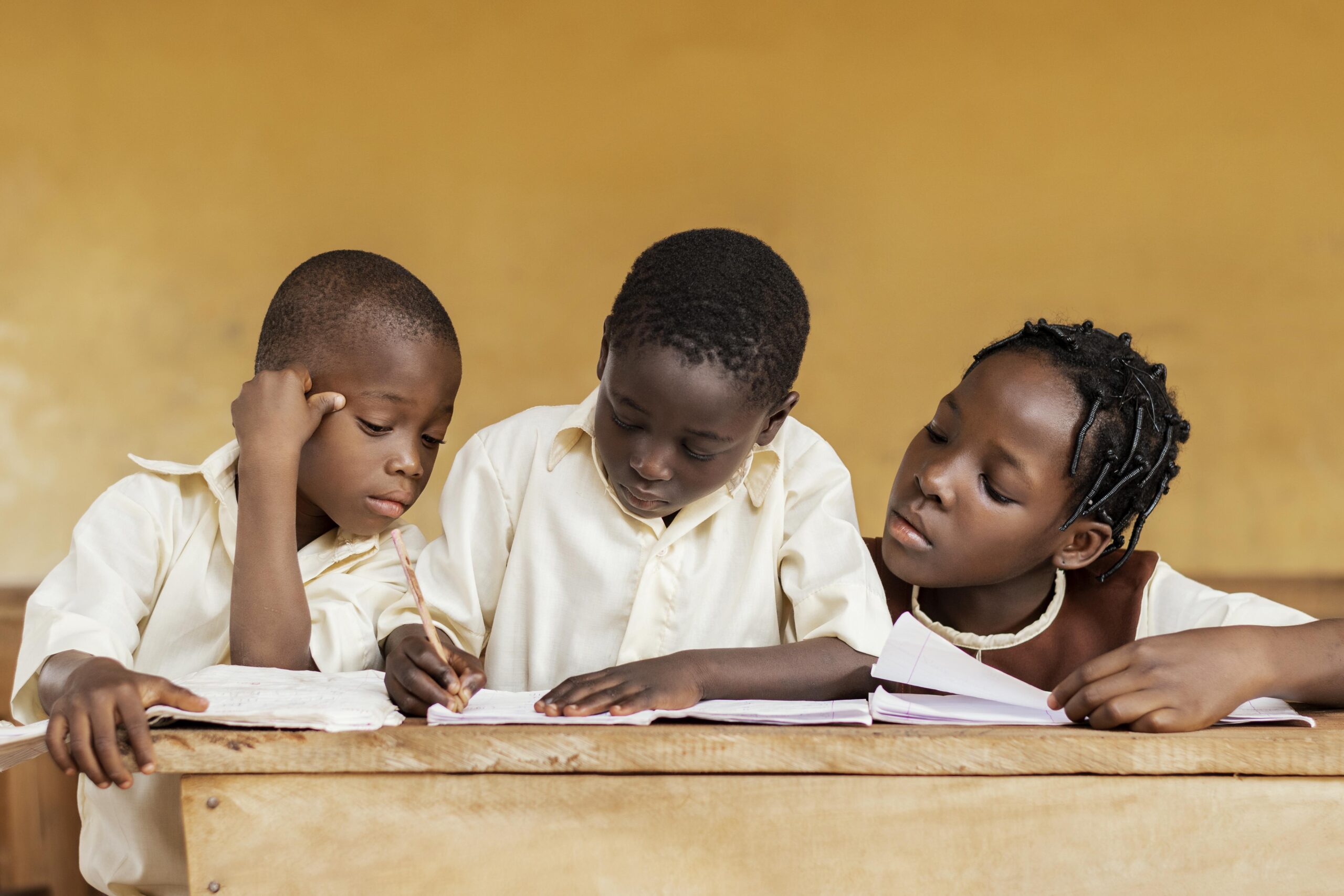A question that is constantly etched in our minds and hanging on the corner of our lips is: « What is wrong with sub-Saharan Africa? » How is it that until 2018, 3 out of 10 adults could not read and/or write? Why is it that of all children enrolled in primary school, only half of them go on to secondary school?
Is sub-Saharan Africa really condemned to being a hidden gem that will probably remain hidden until it manages to ‘escape’ the limitations of its environment and finally shine? Are sub-Saharan countries simply too lazy to improve their current situation? Are we not seeing what other African countries are doing and the impact they are having on society? So what is wrong with sub-Saharan Africa?
Let’s go into what is considered a typical school in sub-Saharan Africa. What you will notice first is the number of students. Ideally, a teacher is responsible for an average of 24 students in a class. In sub-Saharan Africa, this number is often twice as high. In Cameroon, it is easy to find classes where one teacher is responsible for more than 100 pupils. This means that students may not receive the individual attention and support they need to learn effectively.
If you look around that same classroom, something else may catch your eye. It is very likely that there are twice as many boys as girls. It is even more likely that, over the years, 2 out of 5 girls in this class end up leaving school without completing primary education, and 3 out of 5 end up leaving school without completing secondary education.
This is not so bad, some would say, considering that outside the school walls, 1.5 million children under the age of 14 have simply never had access to education in Cameroon. In sub-Saharan Africa as a whole, there are about 87 million, and the number is rising.
These problems are not new. So why is it still the same?
Let’s start with the point that seems easiest to address. If classes are too large, it would be sufficient to divide them so that teachers have fewer children to keep track of. Unfortunately, qualified teachers are in short supply. Less than half of Cameroon’s current teachers have had initial training, and even if all teachers (qualified or not) were to teach a class of 24, at least 30,000 more would be needed to meet the country’s education goals. This figure takes into account the fact that the available teachers are actually willing to take on this role. Despite the heavy workload and long hours, the starting salary for a primary school teacher in Cameroon is about US$240 per month. It is therefore understandable that many teachers in Cameroon and sub-Saharan Africa report low levels of job satisfaction.
What about regions that have a limited number of classrooms relative to the size of their population or simply no schools at all? In addition, conflict and instability in some areas disrupt education, with schools damaged or destroyed and families forced to flee their homes. This makes it difficult, if not impossible, for children to attend and complete school. A notable example is the North-West and South-West regions of Cameroon, where, as a result of the Anglophone crisis, 4,000 schools have closed, depriving more than 700,000 children of regular classes for almost four school years.
Poverty is the biggest challenge we face. Families cannot afford the costs of education, such as school fees, uniforms and textbooks. This can encourage child labour, especially for girls, in household chores but not only. It reduces the time and resources available for education. But can anyone really be blamed for abandoning the quest for greater knowledge to focus on survival?
This is not to inspire pity or empathy. The facts we describe are reality. Our aim is not to justify the state of education in Cameroon in particular, or in sub-Saharan Africa in general, but to highlight the reasons why progress seems so slow in coming. Furthermore, we wish to encourage this progress by highlighting the actions that are being taken by authorities and individuals to create a better future for Cameroon and sub-Saharan Africa. At the same time, we recognise that we are still a long way off. We know that we need help, but we also know that we can be that help.
We can sponsor a child today and provide access to education. This could be financial support to cover school fees, uniforms and supplies, and other costs associated with attending school. Imagine the relief this will bring to parents, who will then be less dependent on their children, both boys and girls, to work or do household chores.
It is true that organisations such as UNICEF and the World Bank are supporting the development of infrastructure in education. However, the burden is so heavy that it is imperative that other non-profit organisations, such as Pierre Thierry Noah Foundation, take it to heart to support this laudable effort.
We could also support teachers, who are at the forefront of shaping our future heroes, by providing them with access to training and resources to help them develop the skills they need to provide a quality education to their students.
We can ensure that our future heroes in Cameroon and sub-Saharan Africa have access to quality education and that teachers have the resources and support to deliver it. Every little step we take brings us closer to the future we want for our heroes.
Let’s act today and support the education sector in Cameroon and sub-Saharan Africa to create a better future for people in the region. Together, our small efforts can lead to significant change.
Learn more about how Pierre Thierry Noah Foundation contributes to education of children in Cameroon. Click Here!
Donate today to make a change for our Future Heroes!


